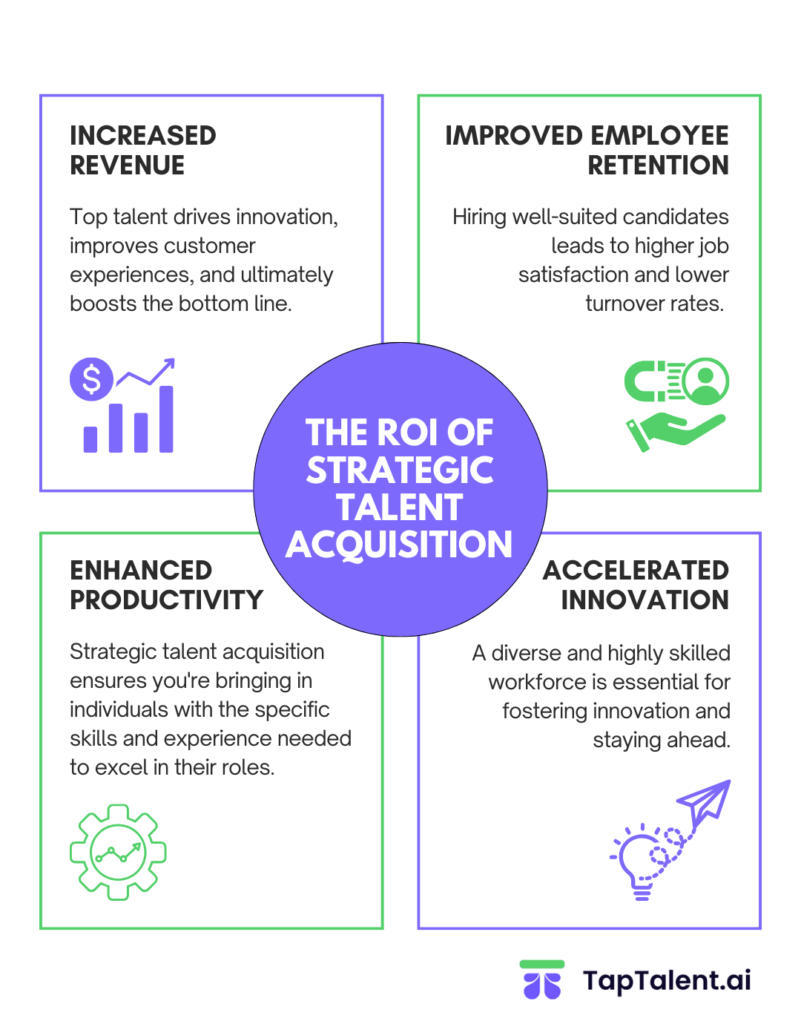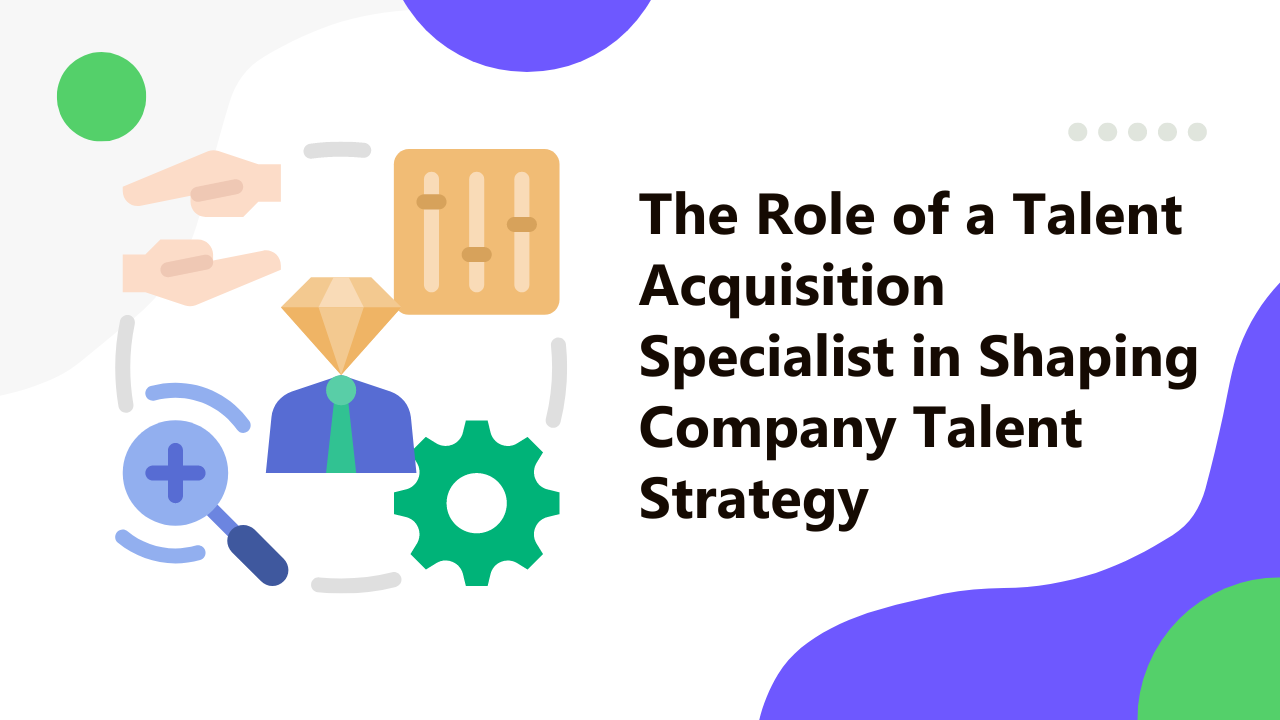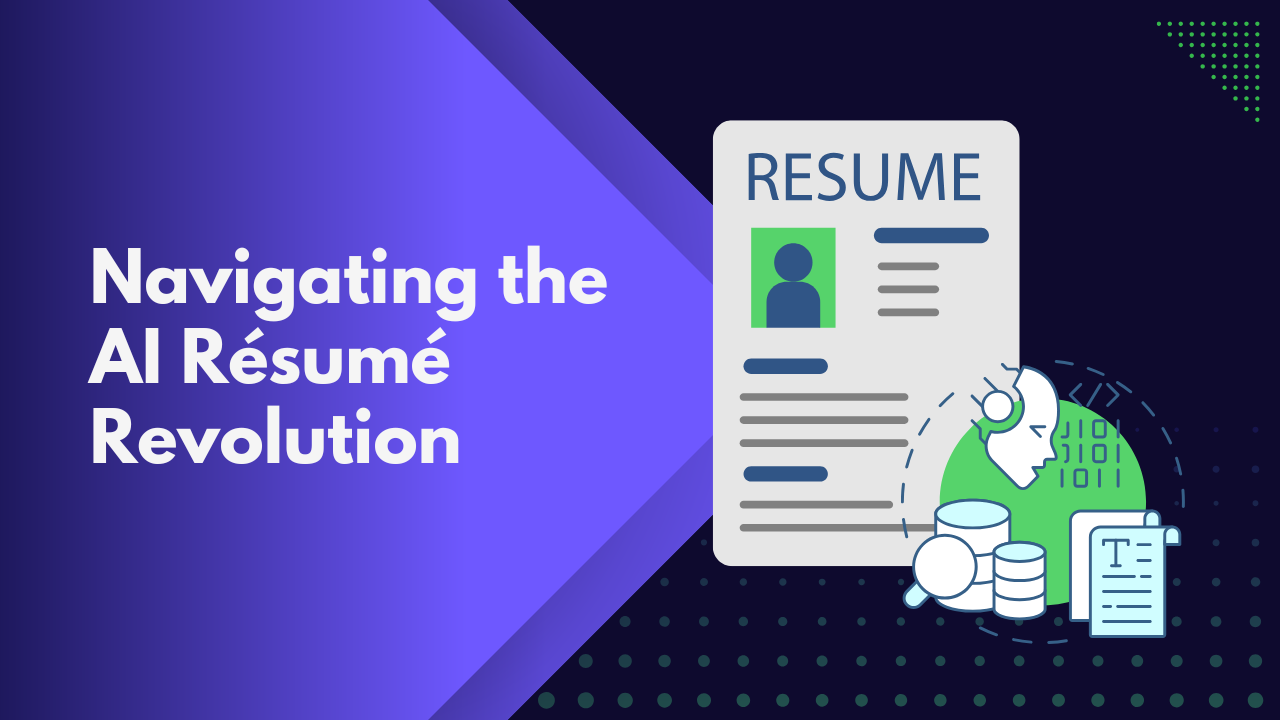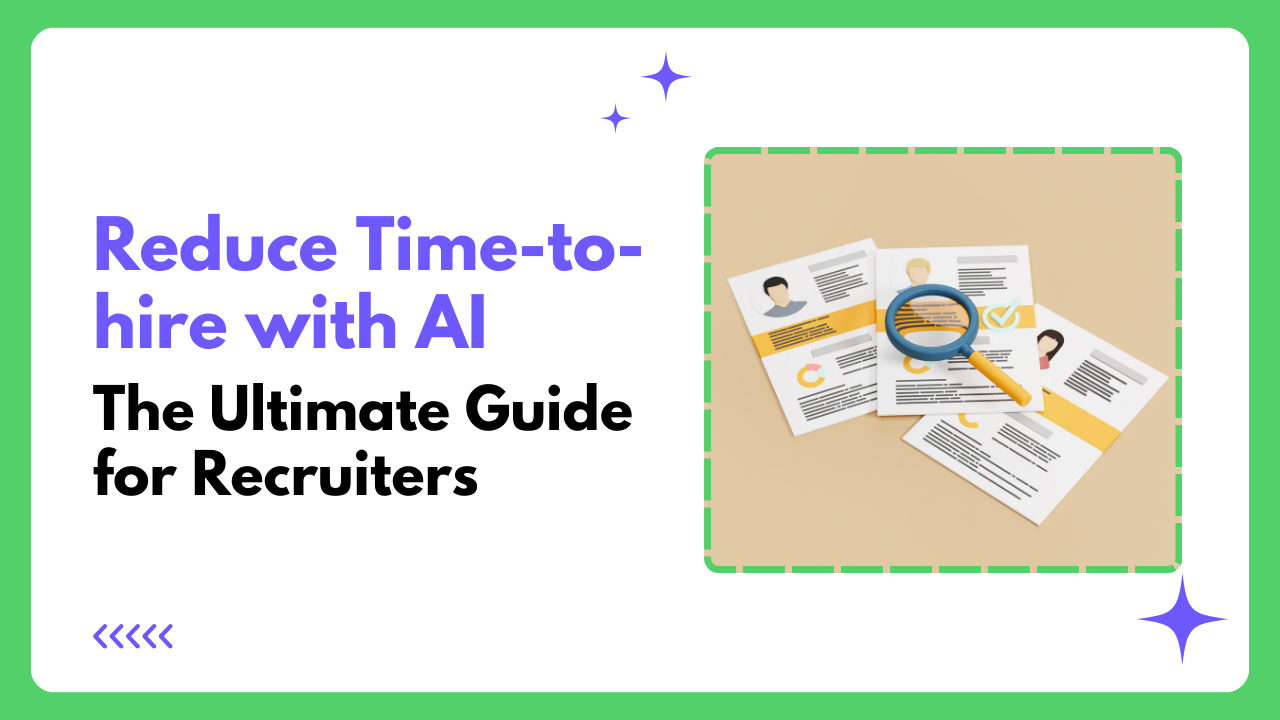Is your company’s talent acquisition strategy simply about filling open roles, or are you aiming higher? In today’s hyper-competitive business landscape, simply filling open positions is no longer enough. As a talent acquisition specialist, it is essential to understand that companies need a proactive and strategic approach to attract, engage, and retain top talent.
Today’s Talent Acquisition Specialists aren’t just filling roles; they’re building the future of their companies. They’ve traded in the transactional recruiter hat for a seat at the strategic table, working hand-in-hand with leadership to shape the workforce that will achieve ambitious goals and drive long-term growth.
Think of them as architects, carefully selecting each ‘building block’ of talent to create a strong, adaptable, and innovative organization. By aligning hiring practices with core business objectives, they ensure every new addition to the team brings the skills and expertise needed to win the war for top talent and achieve lasting success.
Beyond Recruitment: The Expanding Scope of Talent Acquisition

Gone are the days when talent acquisition was confined to posting job ads and sifting through resumes. Today, it’s a dynamic and multifaceted field that plays a pivotal role in shaping a company’s competitive edge. The modern Talent Acquisition Specialist’s responsibilities extend far beyond simply filling open positions. They are strategic partners, focused on building a future-ready workforce.
Here’s how the scope of talent acquisition has expanded:
- Proactive Talent Planning: Talent acquisition specialists now take a proactive approach, identifying and nurturing potential candidates even before positions open. They analyze future workforce needs in alignment with business goals, developing talent pools and building relationships with promising individuals in their field.
- Employer Branding: Recognizing the importance of attracting top talent, specialists are heavily involved in shaping a compelling employer brand. They work to showcase the company’s culture, values, and employee value proposition across multiple channels to attract candidates who align with the company’s mission and vision.
- Candidate Experience: Today, it’s understood that candidates are like customers, and their experience matters. Talent acquisition specialists strive to create a positive and engaging journey, from the initial application to the final hiring decision. This often includes leveraging technology to streamline the application process, provide clear communication, and gather valuable feedback.
- Data-Driven Decision Making: No longer operating on gut feeling alone, talent acquisition specialists now embrace data analytics. They track key metrics like time-to-hire, cost-per-hire, and candidate satisfaction to measure the effectiveness of their strategies and make data-informed decisions to continuously improve their processes.
The role of a Talent Acquisition Specialist is constantly evolving. Organizations that embrace these expanded responsibilities will be better positioned to attract, engage, and secure the talent they need to thrive in today’s competitive market.
From Reactive Hiring to Proactive Talent Planning
Having the right talent onboard can make or break a company’s success. Yet, many organizations still cling to outdated, reactive hiring practices, scrambling to fill positions only when the need becomes dire. This approach, while common, leaves businesses vulnerable to talent shortages, increased costs, and missed opportunities.
Imagine your company suddenly needs a new graphic designer. You scramble to post a job ad, sift through resumes, and interview candidates, all while facing pressure to fill the position quickly. That’s reactive hiring – reacting to an immediate need.
Now, imagine having a pool of skilled graphic designers you’ve already connected with, aware of your company culture, and excited about potential opportunities. That’s proactive talent planning – being prepared before the need arises.
The Power of Proactive Talent Planning
Proactive talent planning represents a fundamental shift in how companies approach talent acquisition. It’s about anticipating future needs, strategically building talent pipelines, and aligning recruitment with overall business goals. This strategic approach offers a significant competitive advantage, enabling companies to:
- Reduce Time-to-Hire: By having a readily available pool of pre-qualified candidates, businesses can drastically shorten the hiring process, saving valuable time and resources.
- Improve the Quality of Hires: Proactive planning allows for more thorough candidate evaluation, leading to better hiring decisions and improved employee performance.
- Gain a Competitive Edge: By securing top talent ahead of the curve, companies can outmaneuver competitors and capitalize on emerging opportunities.
Making the Shift: From Reactive to Proactive
Transitioning to a proactive talent planning model doesn’t have to be daunting. Here’s a step-by-step guide to get you started:
- Analyze Your Current Workforce: Evaluate the skills and competencies present within your organization. Identify potential skill gaps and areas where you might need to bolster your talent pool.
- Forecast Future Needs: Collaborate with department heads and stakeholders to anticipate talent requirements based on projected growth, new initiatives, and industry trends.
- Build Talent Pipelines: Leverage multiple channels to build relationships with potential candidates. Network at industry events, tap into online platforms like LinkedIn, and explore talent marketplaces.
- Develop a Strong Employer Brand: Showcase your company culture, values, and employee value proposition to attract the right talent.
- Nurture Relationships: Engage with potential candidates even before a specific job opening arises. Share company updates, industry insights, and relevant content to stay on their radar.
Understanding the Business Impact of Strategic Talent Acquisition
It’s no coincidence that companies known for innovation and market leadership also prioritize attracting and retaining top talent. Strategic talent acquisition is about more than filling a role; it’s about infusing the organization with individuals who can drive growth and push boundaries. This means viewing talent acquisition as a strategic investment with measurable returns, directly impacting a company’s bottom line in several key ways:
1. Increased Productivity and Innovation:
A skilled engineer with expertise in a niche technology can significantly accelerate product development cycles, giving your company a competitive edge. Similarly, a creative marketing professional with a fresh perspective can develop campaigns that truly resonate with your target audience, boosting brand awareness and sales.
Studies have shown that high-performing employees are significantly more productive than average employees, directly contributing to increased revenue and profitability.
2. Reduced Employee Turnover:
The cost of replacing an employee can be substantial, often ranging from a significant percentage of their annual salary. This includes the cost of recruiting, hiring, onboarding, and the lost productivity during the transition period.
When employees feel challenged, valued, and aligned with the company culture, they are more likely to stay. Strategic talent acquisition focuses on finding the right fit, not just filling a position. This approach leads to higher retention rates and significant cost savings.
Constant turnover disrupts team cohesion, lowers morale among remaining employees, and impacts productivity as time is spent onboarding new hires. A strategic approach to talent acquisition helps create a more stable and productive work environment.
3. Enhanced Company Reputation:
In today’s competitive market, your employer brand matters. Potential employees and customers alike pay attention to how a company attracts, treats, and retains its talent. A positive talent brand can be a key differentiator, attracting higher-quality candidates, reducing recruitment costs, and enhancing the company’s overall reputation in the market.
Companies like Google and Salesforce are renowned for their strong company cultures and commitment to their employees. This has not only made them highly sought-after employers but has also contributed to their overall brand strength and market success. A strong talent brand is a powerful asset that can drive both talent and business growth.

Workforce Planning & Forecasting: Anticipating Future Talent Needs
Let’s face it, hiring the right people is crucial for any company’s success, right? But what if you could go beyond just filling the open roles you have today?
Imagine being able to predict the skills you’ll need tomorrow and connecting with those talented individuals before everyone else is vying for their attention. That’s where a savvy Talent Acquisition Specialist comes in.
They’re like talent scouts with a sixth sense, constantly looking ahead, analyzing data, and keeping their finger on the pulse of your industry. By understanding where your business is headed, they can practically predict the skills you’ll need to get there. And with powerful AI platforms like TapTalent on their side, they can sift through a sea of potential candidates and connect with the perfect match for your company culture and future goals. It’s about building those relationships early on, so when the time is right, you’re not scrambling to find the right fit – you’ve already got a network of amazing talent ready to go.
Diversity, Equity, & Inclusion: Building a More Representative and Competitive Workforce
Diversity, Equity, and Inclusion (DE&I) is not simply a box to be checked; it is a strategic imperative for any company seeking to thrive in today’s globalized world. Talent Acquisition Specialists are champions of DE&I, playing a vital role in promoting these initiatives within their organizations. They actively work to mitigate unconscious bias in their processes, using tools and training to ensure fairness. They use inclusive language in job descriptions to attract a wider range of candidates.
By building diverse talent pipelines, they ensure that the company has access to the best and brightest minds from all walks of life. This not only fosters a richer, more vibrant company culture but also leads to greater innovation, better decision-making, and ultimately, a stronger competitive advantage.
The Talent Acquisition Specialist as a Strategic Advisor
Gone are the days of Talent Acquisition simply taking orders. Today, they are invaluable strategic partners, actively involved in shaping the future of the workforce. This evolution is driven by a simple truth: a company’s success hinges on the talent it attracts and retains.
Collaborating with Leadership & Hiring Managers: A True Partnership
Talent Acquisition Specialists work closely with company leadership to understand long-term business goals, growth projections, and potential challenges that might impact talent needs. For example, a Talent Acquisition Specialist might collaborate with the CEO to identify key skills needed to achieve the company’s five-year strategic plan or work with the CFO to analyze the financial implications of different hiring scenarios.
Furthermore, they bring in-depth knowledge of the talent market, including salary trends, competitor analysis, and emerging skill sets. This allows them to advise on competitive compensation packages to attract top talent in a candidate-driven market or provide insights into the effectiveness of different sourcing channels, recommending strategies to reach diverse talent pools.
Beyond collaborating with leadership, Talent Acquisition Specialists play a vital role in guiding hiring managers throughout the recruitment process.
Guiding Hiring Managers Towards Best Practices
Talent Acquisition Specialists are experts in best practices and can elevate hiring practices within teams. They assist in crafting compelling and inclusive job descriptions that attract the right candidates. When it comes to interviewing and assessment, they share best practices for structured interviews, behavioral-based questions, and skills assessments to minimize bias and ensure objective candidate evaluations. Recognizing the importance of the candidate journey, they coach hiring managers on creating a positive candidate experience throughout the process, from initial contact to onboarding.
Their role extends to problem-solving as well. If a hiring manager consistently struggles to fill a particular role, the Talent Acquisition Specialist can analyze the situation, identify potential issues (e.g., unattractive compensation, unclear job requirements), and recommend solutions.
Leveraging Data and Analytics for Informed Decision-Making
In today’s data-driven world, Talent Acquisition Specialists don’t just rely on intuition – they leverage data and analytics to make informed decisions. They track key metrics such as:
- Time-to-hire: How long does it take to fill open positions? This metric helps identify bottlenecks in the hiring process.
- Cost-per-hire: What’s the average cost of hiring a new employee? This data helps optimize recruitment strategies and allocate resources effectively.
- Candidate satisfaction: How satisfied are candidates with the hiring process? This metric helps improve the candidate experience and attract top talent.
These data-driven insights have a direct impact on talent decisions. For instance, by analyzing data on candidate sources, a Talent Acquisition Specialist might discover that a particular job board yields a higher percentage of successful hires. They can then adjust their sourcing strategy to focus on that platform, maximizing their ROI. Similarly, data on candidate feedback can help identify areas for improvement in the interview process, leading to a more positive candidate experience and potentially higher acceptance rates.
Essential Skills for Talent Acquisition Specialists to Thrive as Strategic Partners
The talent landscape is no longer a predictable terrain; it’s a dynamic environment requiring agility, foresight, and a keen understanding of business needs. As talent acquisition evolves into a strategic business function, the skillset required for success is also transforming at an electrifying pace.
Here are the essential skills that empower Talent Acquisition Specialists to excel as strategic partners:
1. Business Acumen & Strategic Thinking:
- Forget simply understanding job descriptions; today’s Talent Acquisition Specialist needs a firm grasp on the company’s overarching business goals, current industry trends, and the competitive landscape. This includes financial literacy, market awareness, and the ability to align talent acquisition strategies with broader business objectives.
2. Data Analysis and Interpretation:
- Intuition plays a role, but data reigns supreme. Today’s Talent Acquisition Specialists must be adept at collecting, analyzing, and extracting actionable insights from recruitment metrics. This includes understanding time-to-hire, cost-per-hire, candidate satisfaction scores, and more.
3. Relationship Building & Communication:
- This is where the human touch meets strategic thinking. Talent Acquisition Specialists need to cultivate strong, trusting relationships with hiring managers, candidates, and internal stakeholders. Effective communication, active listening, and the ability to influence and collaborate are crucial.
4. Adaptability and Continuous Learning:
- In the ever-evolving world of talent acquisition, resting on your laurels is not an option. Talent Acquisition Specialists need to embrace change, stay updated on the latest recruitment technologies and methodologies, and consistently seek opportunities for professional development.
The Talent Acquisition Specialist’s role is no longer confined to filling job vacancies; it’s about shaping the future of the organization. By embracing these essential skills, Talent Acquisition Specialists can position themselves as strategic partners, driving organizational success in today’s competitive landscape.
Conclusion
Strategic talent acquisition has evolved from simply filling roles to aligning talent with business goals to drive growth and innovation. By embracing a proactive and data-driven approach, Talent Acquisition Specialists play a critical role in shaping company culture, boosting employee performance, and ensuring long-term success.
The days of Talent Acquisition Specialists merely filling open positions are long gone. Today, these professionals are essential strategic partners who shape company talent strategies and directly contribute to achieving critical business outcomes.
Ready to transform your talent acquisition strategy? Visit TapTalent today to learn how our AI-powered platform can help you attract, engage, and hire top talent, streamline your recruitment process, and build a future-proof workforce.
Related Posts
Content
- Beyond Recruitment: The Expanding Scope of Talent Acquisition
- From Reactive Hiring to Proactive Talent Planning
- Understanding the Business Impact of Strategic Talent Acquisition
- Workforce Planning & Forecasting: Anticipating Future Talent Needs
- Diversity, Equity, & Inclusion: Building a More Representative and Competitive Workforce
- The Talent Acquisition Specialist as a Strategic Advisor
- Essential Skills for Talent Acquisition Specialists to Thrive as Strategic Partners
- Conclusion




